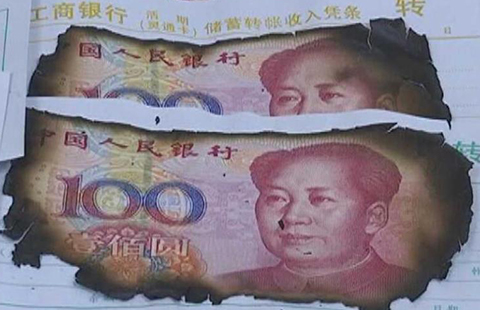China's determination to safeguard sovereignty unshakable
(Xinhua) Updated: 2012-09-11 16:35BEIJING - Following the Japanese government's announcement on the so-called "nationalization" of the Diaoyu Islands, China's civil patrol ships Tuesday reached the waters around the islands to start patrolling and showing China's sovereignty over these islands.
The patrolling, which is a slap in the face to Japan's plot to "nationalize" the Diaoyu Islands, demonstrates the Chinese government's firm and unshakable determination to safeguard its sovereignty and territorial integrity.
From announcing base points and baselines of territorial waters of the Diaoyu Islands to the patrolling, China has taken just and legitimate actions to safeguard its sovereignty over the Diaoyu Islands, which has won widespread applause from the Chinese public.
The measures also conform to the norms of international law in an open, just and straightforward way.
It is known to all that the Diaoyu Islands and the affiliated islands have been China's sacred territory since ancient times, which is supported by historical facts and jurisprudential evidence.
Japan's decision to "nationalize" the islands is ridiculous and absurd. It is an open provocation against China, the rightful owner of the Diaoyu Islands.
Hence, China should resolutely fight back. The patrolling of the waters around the Diaoyu Islands is timely and necessary. The action dealt a big blow to the inflated swagger of Japan.
In history, Japan stole the so-called "administrative rights" of the Diaoyu Islands through unjust means. However, the Japanese government failed to make self-examination of its behaviors. It has acted arbitrarily regardless of the Chinese people's dignity.
Former German Chancellor Willy Brandt knelt down at the monument to Warsaw Ghetto victims to show Germany's sincere apology for its crimes committed during the Second World War, and a united Germany officially renounced in 1990 all claims to the territory east of the Oder-Neisse line.
By comparison, Japan, another invader in the WWII, not only refuses to apologize for its war crimes, but also goes to so far as to "nationalize" territories that belong to another country.
What Japan has done shows that it intends to deny the outcomes of the victory of the World Anti-Fascist War, which constitutes a grave challenge to the post-war international order.
China is forced to react. The Chinese government announced Monday the base points and baselines of the territorial waters of Diaoyu Islands.
According to the Law of the People's Republic of China on Its Territorial Seas and Adjacent Zones, without permission from the Chinese government, foreign warships and vessels are not allowed to enter the waters around the Diaoyu Islands.
In recent years, the Japanese government has repeatedly stirred up troubles on the issue of the Diaoyu Islands. Particularly since the start of the year, Tokyo has endorsed right-wing forces, clamoring for the "purchase" of the Diaoyu Islands and some of the affiliated islands, in an attempt to pave the way for a government "purchase" of the islands.
Recently, several senior Japanese officials even babbled irresponsible remarks, such as vowing to resort to military force to "defend" the country's "territory" in the East China Sea including the Diaoyu Islands.
Such threats, which have angered the Chinese people, were unimaginable several years ago. It is obvious that Japan behaves so arbitrarily, partly because it pins all its hopes on the US military assistance.
This is sheer miscalculation, and Japan should not misjudge China's firmness and resolution in safeguarding its sovereignty and territorial integrity.
Long gone are the days when the Chinese nation was subject to bullying and humiliation from others. The issue of the Diaoyu Islands concerns sovereignty, territorial integrity and national dignity, there is no room for making a concession.
The Chinese people love peace, but they are never afraid of confrontation or threats. Quite a lot of international observers believe that China would resort to more counter actions if Japan continues to make troubles.
Hence, Japan should realize the severity of the issue, correct its wrong-doings and come back to the right track.
- Chinese ships reach waters around Diaoyu Islands
- Japanese govt signs purchase contract on Diaoyu Islands
- Diaoyu will remain China's
- China's statement over Diaoyu Islands
- 'Absolutely no concession' on Diaoyu Islands: Wen
- Japan determines to buy Diaoyu Islands
- Hu: Diaoyu Islands purchase illegal, invalid
- China cautions Japan over bid to 'nationalize' Diaoyu Islands
- Handle Diaoyu issue with care
- US position on Diaoyu Islands very dangerous
- Tokyo govt starts illegal survey near Diaoyu Islands
- Projects opening to overseas researchers
- Streamlined processes to aid top talent
- Two smog hot spots identified in Beijing by think tank
- China-led gravitational wave venture seeks global talent
- Gated communities will open 'gradually', says ministry
- Watchdog pledges to intensify scrutiny
- Court says community road rule needs legislative support
- Improved child care leave for both parents introduced in Shanghai
- Beijing set to double air monitoring stations
- Train ticket glitch results in a lawsuit







